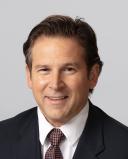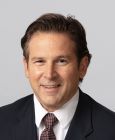Self-Esteem
To Thine Own Self-Efficacy Be True
What you truly believe about your own abilities may be THE key to success.
Posted July 13, 2018

Being a musician with high self-esteem is not particularly remarkable, nor especially helpful in any meaningful way. Most all people operate with a high regard for their own best interests and are inclined to “look out for Number 1.” In this way, most musicians are no different. Compared to the general public, though, musicians tend to more strongly personally identify with their music-making—be it their profession or serious avocation—so how they’re doing musically largely determines how they’re doing in life (and how they feel about themselves)
As human beings, the cues we get from people around us play a big role in how we feel about ourselves. This dynamic can be particularly complicated for performing musicians, whose professional activities often involve much critiquing and comparing to other performers. In this kind of environment in which they feel like they’re constantly pursuing the approval of others, it is understandable that some musicians may not devote much effort probing their own “heart of hearts” regarding what they REALLY think of their own musicianship.
If you’re so busy trying to prove yourself to others, you may ignore the need to prove yourself to yourself. So while high self-esteem may be important as a human being, I would suggest that as a musician (or doer of any skill-based performance), it is more important to have high self-efficacy.
The first use of the term self-efficacy is usually attributed to influential 20th century psychologist Albert Bandura, who defined it as a person’s judgments about his or her ability to plan and carry out the actions needed to accomplish a specific performance task (Bandura, 1986). Nowadays it sounds like a statement of mere common sense to assert that people’s beliefs about their own abilities will affect how successfully they perform them. Indeed, since Bandura started advancing the idea of self-efficacy, it has become a thoroughly researched and well-accepted factor in skill acquisition in many domains, including music (see Zimmerman, 2000 for a thorough research-based introduction to self-efficacy in the context of learning; see Hallam, McPherson & McCormick for music specific coverage).
Self-efficacy to solve performance anxiety
Among teachers of performance, one of the most useless — and unfortunately common – pieces of advice is to “be confident.” Sure, teachers can help their student musicians APPEAR more confident when they perform, by helping them learn certain behaviors to exhibit while on stage, such as smiling and having a strong upright posture, and making eye contact with co-performers and audience. But to actually be confident is no simple act of will.
Confidence is based on expectation. Imagine you’re the Renaissance artist Michelangelo, and you’re about to climb your scaffolding to suspend you some 60 feet in air so you can work on your fresco on the Sistine Chapel ceiling. You will go to the top of that wooden structure because you are confident it will safely hold you. If, however, you expect it to topple, you’ll never start the climb. Now imagine you have the same expectation of collapse as an artist. What if Michelangelo thought he was not very good at painting human hands? I doubt The Creation of Adam portion of the work would be as iconic as it is.
As a performer, if you fully expect the music you produce on stage to match the expressive version you hear in your head, then you’ve put yourself in the best position possible to make that really happen. If, however, in your heart of hearts, you expect that you won’t be able to do it, then you are probably well on your way to making that a reality too.
Self-efficacy to guide practicing
The main reason why we practice is to acquire (and refine) the skills required to be the performers we want to be. But with self-efficacy in mind, I would suggest that when it comes to being performers, acquiring skill is only part of the process. Not only do performers need to know how to carry out a skill, they must have full confidence in their ability to do so.
With this in mind, it behooves musicians, when preparing for a public performance, to practice for a level of mastery. And I want to emphasize that I don’t use the term mastery in a virtuosic bedazzle-the-audience kind of way, but rather in the psychological context in which a skill is learned so completely that aspects of it have become automatized.
Practicing toward mastery requires musicians to have an accurate awareness of where their skills are in the progression from the cognitive stage (in which performance-specific knowledge instructs their deliberate and methodical bodily movements) to the autonomous stage (in which repetition has solidified procedural memory to where the movements of performance become faster and more fluent, and requires little conscious attention). All new skills start in the cognitive stage; practicing a skill here requires much explicit planning, effortful execution, and intensive self-monitoring of results (i.e., detecting errors and devising corrective strategies). Practicing in the cognitive stage is quite different than practicing a skill that’s approaching automaticity. Practicing a skill here might lead musicians to practice while in a somewhat distracted state (perhaps in front of the television, or in an unfamiliar location/settting). This way they can test their level of mastery and perhaps move the skill forward along the progression to the autonomous stage.
Self-efficacy is defined in the context of performing a specific task. Musicians should be as specific as possible in identifying what skill they are working on at each point in their practicing. Sometimes all that’s really needed is some honesty with oneself. Imagine, for example, that an aspiring jazz musician decides he wants to improve his improvising ability. Having this general goal is fine, but if what’s really getting him to practice is an upcoming concert in which he’ll solo over a 12-bar blues, then this specific task should guide his strategizing and selection of activities for practice.
Also related to being honest with oneself and performance task specificity, musicians would do well to acknowledge that the their when they are practicing a piece of music, their actual goal is not just to be able to play the piece well, it is almost always to be able to play it well in a public performance before a live audience. Identifying this as the specific performance task should move them to incorporate important situational aspects into their practice, such as practicing in the type of dress clothes they’ll wear in the concert or practicing the facial expressions and bodily gestures they’ll want to exhibit in performance.
When musicians do this type of practicing, they are more likely to build the musical self-efficacy they need to go into a performance fully expecting success.
Self-efficacy as a musical lifestyle
Building the self-efficacy of a performing musician is not a matter of knowledge or ability but a matter of motivation. And motivation is not just a feeling of want-to. A motivated musician is not the one who wants to be a successful performer, no matter how badly he or she wants it. A motivated musician is the one who does the things that lead to performance success. The lifestyle of a motivated musician is one of action.
Just knowing about self-efficacy will have little practical impact on your performance ability as a musician. When it comes to self-efficacy, awareness may indeed be the first step toward change, but the next steps after it cover a lot of ground! I’ve implored many music educators, “After you teach your students how to do something such that you are convinced that they are able to do it, you then need to convince them that they are able to it.” As musicians, sometimes we are not easily convinced that we’ve learned a new skill. It’s not as simple as being told (by teachers or ourselves) that we’ve learned it, no matter how passionately or repeatedly we’re told.
People come to trust in their ability to perform by…performing. That means performing often and under a variety of conditions. That’s why I’ve said that it’s cruelly ironic that musicians who suffer from performance anxiety will naturally want to perform less, when their path to overcoming it ultimately involves performing more. You may think that you’re helping your confidence by avoiding performance failures, but if the way you do this is by avoiding performance altogether, then what you’re really doing is just undermining your opportunity to build self-efficacy.
Copyright 2018 Robert H. Woody
Source of image: Wikimedia Commons.
References
Bandura, A. (1986). Social foundations of thought and action: A social cognitive theory. Englewood Cliffs, NJ: Prentice-Hall.
McPherson, G. E., & McCormick, J. (2006). Self-efficacy and music performance. Psychology of Music, 34, 322-336.
Zimmerman, B. J. (2000). Self-Efficacy: An essential motive to learn. Contemporary Educational Psychology, 25, 82-91.




